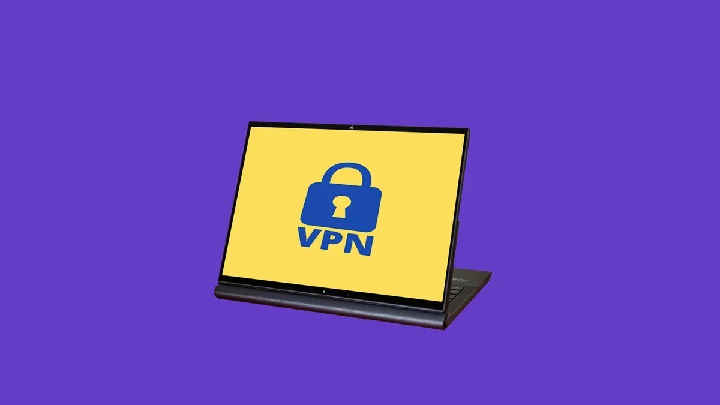PPTP is an older protocol that was designed back in 1995. It’s popular among users because it’s easy to set up and bypass censorship. Its major downside is that it has very low-security standards and is alleged to have been cracked by the NSA.
1. Know Your Requirements
What is a VPN router, and how to choose it? The first step to selecting a VPN protocol is to know your requirements. There are two critical things to consider: speed and security. Different protocols offer different combinations of authentication and encryption, which affects internet browsing speeds and levels of privacy and security.
PPTP is one of the oldest VPN protocols and was developed by Microsoft. While it offers good browsing speeds, PPTP is less secure than other VPN protocols. It only uses basic 128-bit encryption, so hackers can easily break through this and steal sensitive data. As a result, Microsoft has discontinued support for PPTP and recommends upgrading to other protocols.
SSTP, on the other hand, is an excellent choice for Windows users. It’s also fast and works well with mobile networks. However, it isn’t very reliable and can be challenging to set up on other devices. Fortunately, there is an excellent solution for both speed and security. It can even maintain a connection when switching networks and is particularly useful for mobile use.
It is recommended to use this protocol if you want to stream geo-restricted content or face censorship issues. IPsec uses strong encryption and authentication, so it’s difficult for hackers to intercept your data. It is also known for overcoming firewalls. Many VPNs choose this as their default protocol for corporate customers.
2. Check the Provider’s Network Coverage
If you’re looking to secure a network of your own or want your team members to have access from wherever they are, choosing a VPN with strong network coverage is essential. This means that it offers connections across a variety of countries and has a large number of servers to support users around the world.
A good provider also offers a no-logs policy, ensuring your online activity stays private and safe. This is especially critical for those who work in sensitive industries, such as finance, healthcare, and technology.
Another factor to consider is whether the provider has any performance restrictions. Ideally, your chosen VPN solution will keep your internet speeds up, but this can depend on the type of work your team does and the bandwidth of the Wi-Fi connection. A good option is to opt for a split tunneling feature, which separates the VPN traffic from other apps and devices, so it doesn’t impact your speed.
Lastly, consider whether the provider offers a central management system and multi-factor authentication. Choosing a VPN with these features will make it easier for IT teams to manage it and ensure that employees are connected securely from any device. In the modern business world, where cyber threats are constantly evolving and growing, these tools can help your team stay connected and productive from anywhere globally.
3. Look for an Open-Source VPN
While many VPN services create proprietary tunneling protocols, these are only sometimes the best solution for everyone. Proprietary solutions can be vulnerable to security vulnerabilities like man-in-the-middle attacks. Additionally, they need to work better when bypassing firewalls or censorship. Open-source protocols, on the other hand, are typically more stable and secure. They are also free or much cheaper than their proprietary counterparts.
The most common open-source protocol which most premium VPNs use. This protocol is secure, fast, and stable. It uses strong encryption and encapsulates data twice for added security. In addition, it has good reconnection capabilities. It can also be used on mobile devices and works with all major operating systems.
Another popular option is a tunneling protocol. It is beneficial on mobile devices because it can be configured to reconnect if the connection fails automatically.
Finally, SSTP is a proprietary protocol that uses SSL/TLS encryption to create an encrypted tunnel. It is a good choice for users who want to avoid switching between VPNs or have an older device.
4. Check the Stability of the Provider’s Network
The protocol a VPN uses to establish an encrypted tunnel affects browsing speeds, latency, and performance. It also impacts security, with different protocols offering different levels of encryption and authentication. The encryption method scrambles your data into a format that can only be decoded by a key, making it unreadable to unauthorized parties.
The best VPNs use ciphers to protect your sensitive information from hackers and other attackers. These ciphers are considered secure and are hard to crack by malicious actors. Some VPNs offer additional encrypting options to make their network even more secure.
Some VPN providers offer custom security protocols not found in other open-source solutions. These are usually more stable and secure than other protocols but require advanced technical knowledge to configure. Others offer standardized protocols that are easy to set up and work on most devices.
For example, there is the standard choice for most VPN services because it’s fast and works well on mobile devices. It also has an excellent track record for bypassing firewalls and can run over TCP or UDP. However, it has several security issues, including being susceptible to the POODLE attack and being vulnerable to man-in-the-middle attacks. It’s, therefore, best avoided unless speed is a significant consideration or your provider offers no other option.
